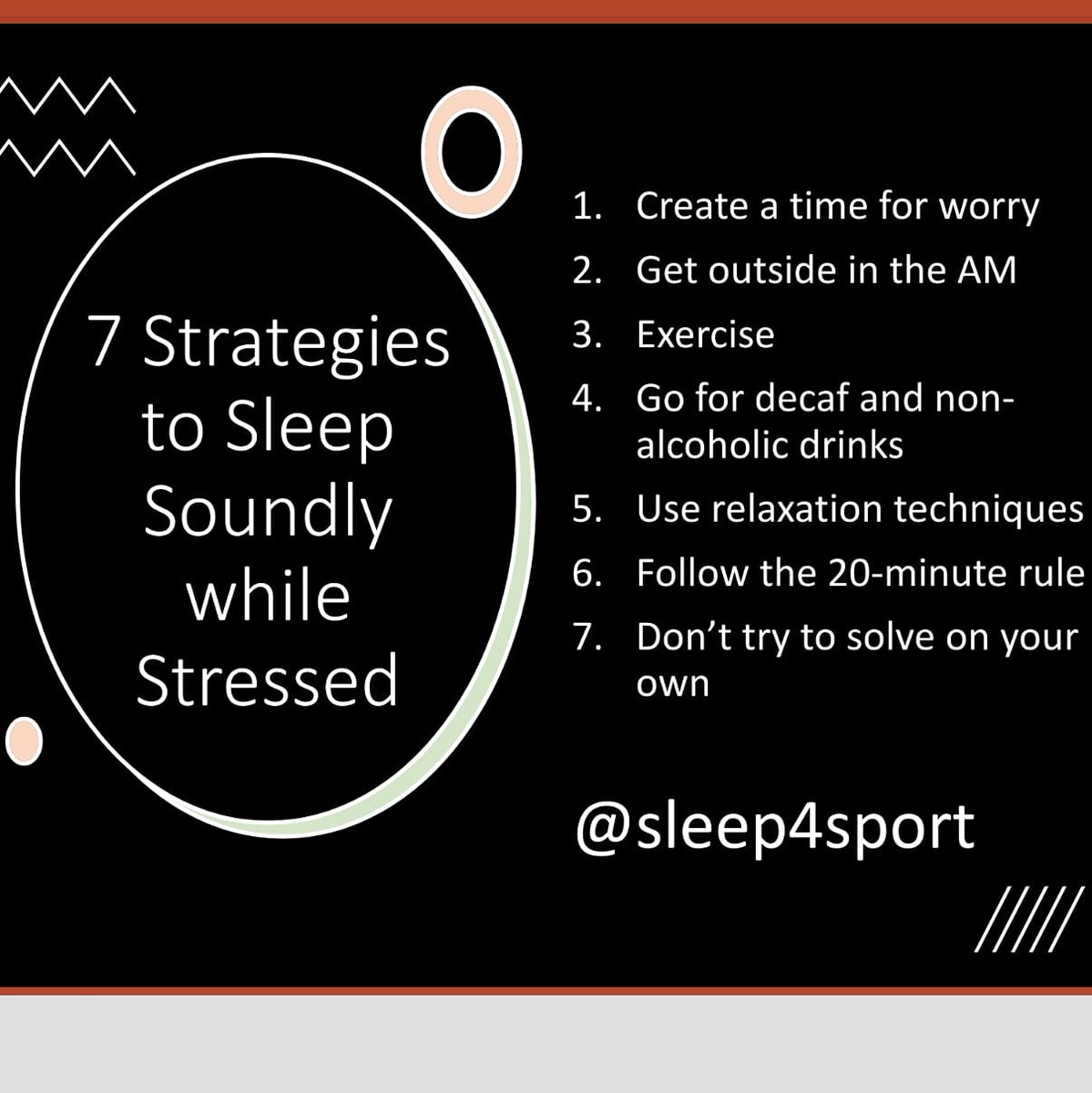On Friday, I did a talk on sleeping during times of stress for the @hackmyage community. It was a fun time and had so many great questions. Here is a summary of the 7 strategies I talked about.
1) Create a time for worry and get to know your anxiety.
Be aware of your anxiety and what sets it off. Bring yourself back to the present with breathing or worry stone. Set aside a specific time to worry at least 4 hours from bedtime.
Be aware of your anxiety and what sets it off. Bring yourself back to the present with breathing or worry stone. Set aside a specific time to worry at least 4 hours from bedtime.
2) Get AM light outside.
Light gets us awake and strengthens our body clocks. Outside light can be as much as 200 times brighter than indoor lighting. Aim to get at least 30 minutes of outdoor light by noon bc that's when we're most sensitive.
Light gets us awake and strengthens our body clocks. Outside light can be as much as 200 times brighter than indoor lighting. Aim to get at least 30 minutes of outdoor light by noon bc that's when we're most sensitive.
3) Get some exercise.
Exercise reduces stress hormones increases endorphins and energy. It also helps you sleep deeper and can increase the amount of sleep that you get.
Exercise reduces stress hormones increases endorphins and energy. It also helps you sleep deeper and can increase the amount of sleep that you get.
4) Opt for decaf & non-alcoholic drinks.
Stress = more likely to use substances. Caffeine & alcohol can degrade sleep quality which to exaggerated perceptions of stress. Some benefits of having a
to exaggerated perceptions of stress. Some benefits of having a  or alcoholic drinks comes from the ritual, so replace with a better version.
or alcoholic drinks comes from the ritual, so replace with a better version.
Stress = more likely to use substances. Caffeine & alcohol can degrade sleep quality which
 to exaggerated perceptions of stress. Some benefits of having a
to exaggerated perceptions of stress. Some benefits of having a  or alcoholic drinks comes from the ritual, so replace with a better version.
or alcoholic drinks comes from the ritual, so replace with a better version.
5) Use breathing & relaxation techniques.
4-7-8 breathing, progressive muscle relaxation, five finger breathing, cognitive shuffle are all good techniques for when you are having problems falling asleep either at beginning of the night or in the middle of the night.
4-7-8 breathing, progressive muscle relaxation, five finger breathing, cognitive shuffle are all good techniques for when you are having problems falling asleep either at beginning of the night or in the middle of the night.
6) Follow the 20-min rule.
If you've been lying awake in your bed for about 20 minutes, get up out of bed and do a relaxing activity in low light and only returned back to bed when sleepy. This limits the association between bed and being awake.
If you've been lying awake in your bed for about 20 minutes, get up out of bed and do a relaxing activity in low light and only returned back to bed when sleepy. This limits the association between bed and being awake.
This happened to me the night before the presentation. My daughter woke me up at 4:30 am & I tried some relaxation techniques but to no avail. So I got up and started my day at 5 a.m. Did I think that my day was going to be ruined by the lack of  ?
?
 ?
?
Absolutely not, I told myself that I got good sleep leading into this sleep deprivation period and that I would be fine. And what do you know, I didn't completely tank and forget my lines.
7) Don't try to solve it on your own.
If you're struggling with a sleep problem or mental health problem and it's been over a month, it's worth it to get help from an expert and not delay. The sooner you get help, the easier it will be to treat.
If you're struggling with a sleep problem or mental health problem and it's been over a month, it's worth it to get help from an expert and not delay. The sooner you get help, the easier it will be to treat.

 Read on Twitter
Read on Twitter


